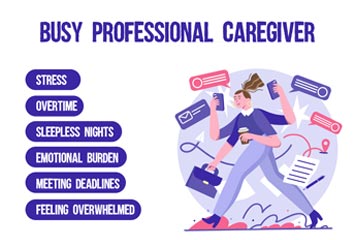Understanding Hospice and Palliative Care
The goals of hospice and palliative care are to comfort, assist, and manage symptoms for those who have a serious disease or are nearing the end of their lives. These services can be given in a range of locations, such as hospitals, hospice facilities, and in-home care, and are intended to meet the physical, emotional, and spiritual needs of people and their families.
The Value of Palliative and Hospice Care
The goal of hospice and palliative care is
to comfort and support people who are dealing with a terrible disease or who
are nearing the end of their lives. These services can support people
emotionally and spiritually while also assisting them in managing their
symptoms and improving their quality of life. Additionally, they can encourage
loved ones and family members who might be finding it difficult to deal with
the illness of a loved one.
Helping people live as fully and comfortably as possible despite their disease is the aim of hospice and palliative care. These types of carers are trained to recognise the unique requirements of patients and their families and to offer the right kind of support and care. They can aid in managing pain and symptoms, offer psychological and spiritual support, and assist people in making challenging decisions regarding their treatment.
Hospice and Palliative Care's Advantages
Hospice and palliative care can benefit
patients and their families in a number of ways, including:
Hospice and palliative care can assist
patients in managing their symptoms and enhancing their general quality of
life. They can offer people the pain relief, mental support, and spiritual care
they need to find consolation in trying times.
Hospice and palliative care can also offer
assistance for family members and other close friends. In addition to giving
family members the resources they need to care for their loved one, carers can
offer advice and assistance to help them deal with their loved one's illness.
Hospice and palliative care can be given in
a number of venues, including the comfort of the patient's own home. Instead of
receiving treatment in a hospital or nursing home, persons may be able to do it
in the security and familiarity of their own homes.
·
Care coordination: Hospice and
palliative care teams are skilled in coordinating the efforts of numerous
medical specialists so that patients can receive all-encompassing care that
addresses their needs on a physical, emotional, and spiritual level in addition
to that of their families.
·
The Various Hospice and
Palliative Care Practices
·
Depending on the needs of the
patient, hospice and palliative care can take many different forms. Typical
forms of assistance include:
·
Pain and symptom control: This
entails controlling discomfort, nausea, and other symptoms that may be brought
on by a major illness.
·
Emotional and spiritual
assistance: This involves offering people and their families emotional and
spiritual support.
·
Care coordination: This entails
coordinating the care of several medical specialists, such as doctors, nurses,
and other members of the medical staff.
·
Bereavement support: This
involves offering assistance to grieving family members, such as grief counselling
and support groups.
Choosing the Best Palliative and Hospice Care
Hospitals, hospice centres, in-home care,
and other locations can all offer hospice and palliative care. Choosing the
appropriate form of care for a person's unique needs is crucial. Involving the
person's family, friends, and medical professionals in the decision-making
process is crucial as well. To choose the optimal course of treatment, it is
crucial to consult both the patient and the medical community.
Finally, hospice and palliative care are specialised medical care services that concentrate on giving comfort, support, and symptom management to people who have a terrible disease or are on the verge of passing away. They are made to meet the needs of people and their families on a physical, emotional, and spiritual level. People who need support emotionally and spiritually might benefit from hospice and palliative care, which can also help them manage their symptoms and enhance their quality of life. Additionally, they can encourage loved ones and family members who might be finding it difficult to deal with the illness of a loved one. Individuals with serious illnesses might find solace and support through a trying time with the correct kind of care.




